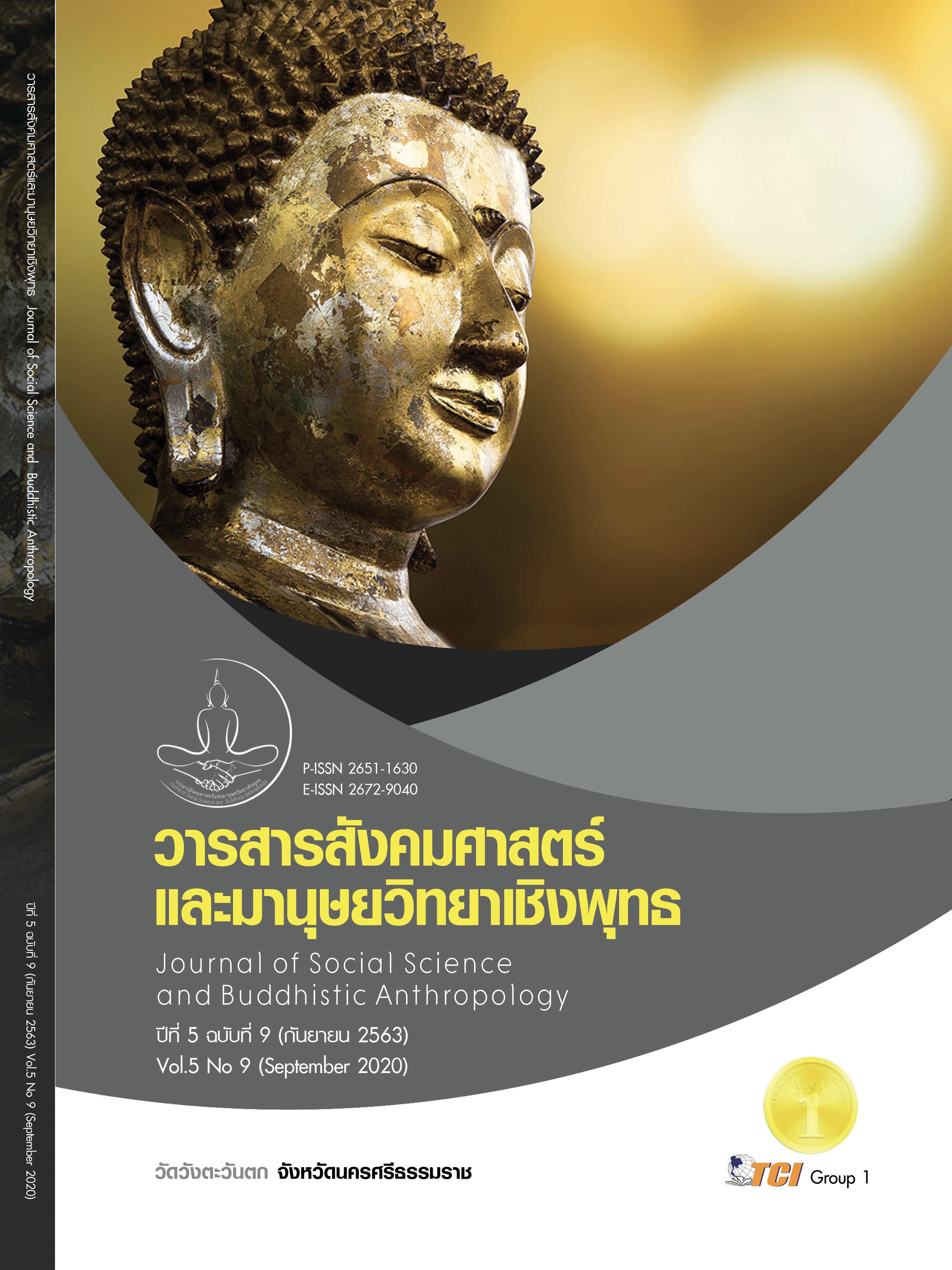THE ELECTRONIC COMMERCE DEVELOPMENT OF THAILAND STARTUP BUSINESS
Keywords:
Electronic Commerce Development, Startup Business Operators, Online Marketing, The Theory of Extended Model of Internet Commerce AdoptionAbstract
This research article aimed to investigates business type and the form of electronic commerce development of Thailand startup business. To assess the pattern of e-commerce development according to eMICA Model. And to evaluate the relationship between start-up business types and pattern of e-commerce development. This study uses the Theory of Extended Model of Internet Commerce Adoption: eMICA to evaluate the web-site performance. Data were collected from 614 website of Thailand startup business in Thailand, divided into 12 types of businesses. Descriptive statistics were used to analyze the data in terms of frequency and percentage. Inferential statistics were used to examine the relationships between variables in terms of Chi-square and exploratory factor analysis. The study that the most e-commerce developed was basic information providing (58.3%) follow by order link image (31.8%), while the least developed in provide foreign exchange rates (2.3%). Correlation analysis showed that difference type of startup business operators has developed differences electronic commerce. Moreover, the study found that the electronic commerce development of Thailand startup business can divided into 6 subgroups; 1) basic information 2) facilitation of product search 3) facilitation of product selection 4) facilitation of business overview 5) facilitation of product purchasing and 6) individual facilitation.
References
คณะกรรมการส่งเสริมวิสาหกิจเริ่มต้นแห่งชาติ. (2561). ทิศทางสตาร์ทอัพไทยในปี 2562. วารสารสตาร์ทอัพไทยแลนด์ (Startup Thailand), 2(15), 4 - 7.
สำนักงานพัฒนาธุรกรรมทางอิเล็กทรอนิกส์. (2560). รายงานผลการสำรวจมูลค่าพาณิชย์อิเล็กทรอนิกส์ในประเทศไทย ปี 2560. (พิมพ์ครั้งที่ 1). กรุงเทพมหานคร: สำนักยุทธศาสตร์ สำนักงานพัฒนาธุรกรรมทางอิเล็กทรอนิกส์ (องค์การมหาชน) กระทรวงดิจิทัลเพื่อเศรษฐกิจและสังคม.
อัศวิน แสงพิกุล. (2559). วารสารสืบเนื่องจากการประชุมวิชาการระดับชาติ ปี 2559 “พลวัตวิจัย เพื่อพัฒนาท้องถิ่น และชุมชนอย่างยั่งยืน”. (พิมพ์ครั้งที่ 7). ภูเก็ต: มหาวิทยาลัยราชภัฏภูเก็ต.
Abdullah, et al. (2019). An Extended Stage Model for Assessing Yemeni Smes’ E-Business Adoption.in Higgins et al., (eds). Creating Entrepreneurial Space: Talking Through Multi-Voices, Reflections on Emerging Debates. United Kingdom: Emerald Publishing Limited.
Baloglu, S. & Pekcan, A. (2006). The website design and internet site marketing practices of upscale and luxury hotels in Turkey. Tourism Management, 27(1), 171 - 176.
Bastida, U. & Huan, C. (2014). Performance evaluation of tourism websites' information quality of four global destination brands: Beijing, Hong Kong, Shanghai, and Taipei. Journal of Business Research, 67(2), 167 - 170.
Burgess et al. (2001). The adoption of the Web as a marketing tool by Reginal Tourism Associations (RTAs) in Australia. ACIS2001 Proceedings Paper9. Retrieved June 2020, 20, from http://aisel.aisnet.org/acis2001/9
Burgess, L & Cooper, J. (1998). Collecter Conference on Electronic Commerce. (2nd Edition). In Sydney Australia. University of Wollongong.
Daries et al. (2018). Maturity and development of high-quality restaurant websites: A comparison of Michelin-starred restaurants in France, Italy and Spain. International Journal of Hospitality Management, 73(1), 125 - 137.
Felix et al. (2016). Elements of Strategic Social Media Marketing: A Holistic Framework. Journal of Business Research, 70(1), 118 - 126.
Husam Yaseen el al. (2017). E-Commerce Adoption Model for Traditional Retailers in Developing Countrie. The International Journal for Infonomics, 10(2), 1296 - 1306.
Jagongo, A. & Kinyua, C. (2013). The Social Media and Entrepreneurship Growth. (A New Business Communication Paradigm among SMEs in Nairobi. International Journal of Humanities and Social Science, 3(10), 213 - 227.
Kannan, K. & Hongshuang, L. (2017). Digital marketing: A framework, review and research agenda. International Journal of Research in Marketing, 34(1), 22 - 45.
Kelly Steer, et al. (2019). SWOT Analysis of e-Marketing for e-Business. International Journal of Innovative Technology and Exploring Engineering (IJITEE), 8(3), 153 - 159.
Li, X. & Wang, Y. (2011). Measuring the effectiveness of US official state tourism websites. Journal of Vacation Marketing, 17(4), 287 - 302.
Murphy et al. (1996). Hotel management and marketing on the Internet. The Cornell Hotel & Restaurant Administration Quarterly, 37(3), 70 - 82.
Neeraj K Pandey. (2018). An Analysis of Startup Ecosystem in Metropolitan City in India. International Journal of Engineering and Management Research, 8(2), 237 - 244.
Panayiotou, A. & Katimertzoglou, K. (2015). Micro firm’s internet adoption patterns: the case of the Greek jewelry industry". Journal of Enterprise Information Management, 28(4), 508 - 530.
Peng Y-C et al. (2005). Internet and e-commerce adoption by the Taiwan semiconductor industry. In 2003 E-Commerce Research Conference, 4(105), 476 - 490.
Pesonen, J. & Palo-oja, M. (2010). Comparing Internet commerce adoption between the Finnish and the European independent accommodation companies. In: Gretzel et al., (eds). Information and Communication Technologies in Tourism 2010. New York: Springer.
Pratima Bhalekar et al. (2017). The study of E-commerce. Asian Journal of Computer Science and Information Technology, 4(3), 25 - 27.
Salwani et al. (2009). E‐commerce usage and business performance in the Malaysian tourism sector: empirical analysis. Information Management & Computer Security, 17(2), 166 - 185.









